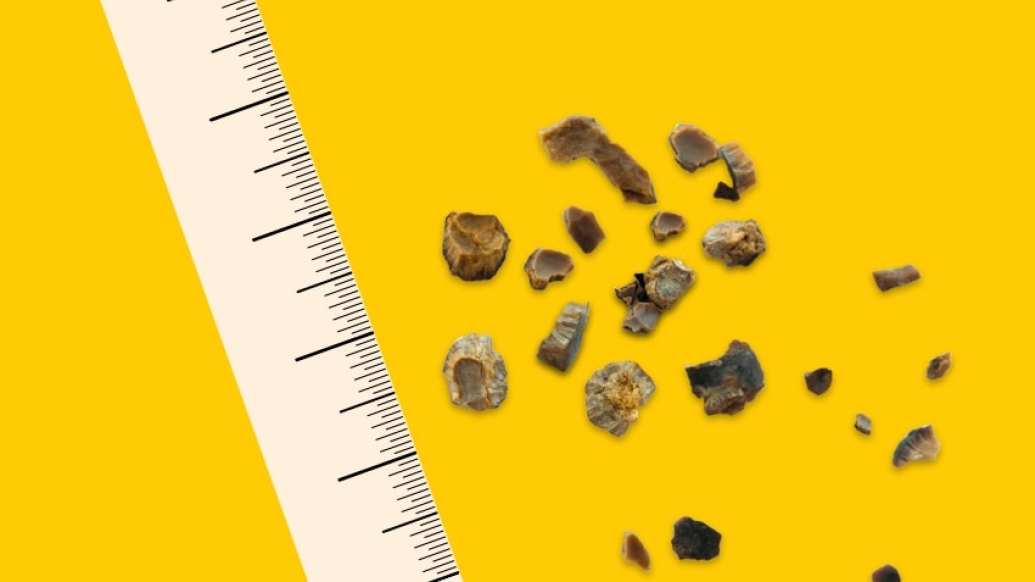Providers want to help their patients pass kidney stones without surgery. A new review shows alpha blockers are still a good bet, especially for large stones.
7:00 AM
Author |

Providers are always looking for the right combination of lowest risk and highest benefit for their patients.
MORE FROM THE LAB: Subscribe to our weekly newsletter
For patients with kidney stones that won't pass on their own, contemporary practice guidelines recommend considering alpha blockers to facilitate stone passage.
But when a 2015 study questioned the effectiveness of alpha blockers for this purpose, many physicians wondered whether to change course.
John Hollingsworth, M.D., associate professor of urology at the University of Michigan Medical School, served as first author on a new review of 55 pieces of kidney stone research that investigated the effect of alpha blockers. The review suggests physicians should feel confident following current guidelines.
"We found alpha blockers do work for larger kidney stones," Hollingsworth says. "It's a win for our patients to have nonsurgical help to pass their kidney stones."
He explains more about the significance of the work, published this month in The BMJ.
What was different about your research approach?
Hollingsworth: The popular recent article suggested it may not be worth the time or money to try alpha blockers for kidney stone patients. Their multicenter study in the U.K. compared alpha blockers to placebo in 1,136 subjects and did not find the alpha blockers effective.
There had been a fair amount of ambiguity following the U.K. trial. So we thought it was important to take those findings and put them into the context of what is already known about kidney stones.
Our team pooled together 55 randomized controlled trials, all comparing alpha blockers to placebo or control. With this approach, we were able to evaluate 5,990 subjects all at once and get a full picture of the situation.
We also considered stone size and location to see if either one was a factor in successfully passing the stone.
What did your review find?
Hollingsworth: Overall, the results show moderate evidence to support using alpha blockers for those kidney stone patients who do not require urgent surgery.
SEE ALSO: A Step Toward a Vaccine Against Urinary Tract Infections
We reported a 57 percent higher risk of stone passage for larger stones when the patient was taking an alpha blocker. However, the benefit was not there for smaller stones. The location of the stone did not make a difference, nor did the type of alpha blocker used.
In addition to a shorter time to pass the stone, patients who used alpha blockers also reported fewer pain episodes and a lower risk of hospital admission, and they were less likely to undergo surgery.
What should providers take away from this?
Hollingsworth: Our review helps solidify the current guidelines, which recommend off-label use of alpha blockers, such as tamsulosin, known as Flomax, for kidney stones. Providers can now better identify the patients who are likely to benefit from alpha blockers: those with larger kidney stones.
It's great news that patients dealing with intense pain from kidney stones may indeed find relief with a medication rather than a surgery.

Explore a variety of healthcare news & stories by visiting the Health Lab home page for more articles.

Department of Communication at Michigan Medicine
Want top health & research news weekly? Sign up for Health Lab’s newsletters today!





